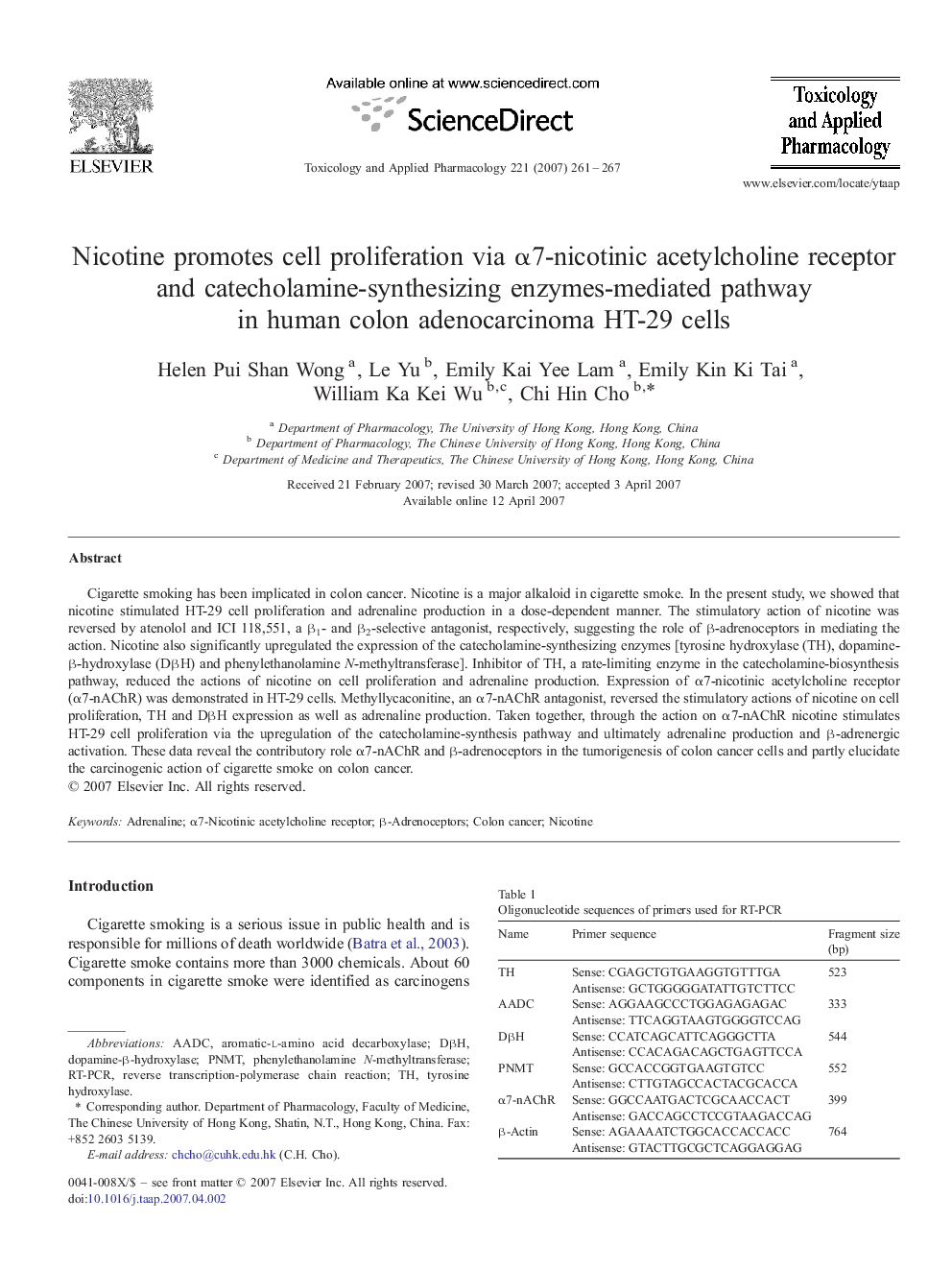| Article ID | Journal | Published Year | Pages | File Type |
|---|---|---|---|---|
| 2571290 | Toxicology and Applied Pharmacology | 2007 | 7 Pages |
Abstract
Cigarette smoking has been implicated in colon cancer. Nicotine is a major alkaloid in cigarette smoke. In the present study, we showed that nicotine stimulated HT-29 cell proliferation and adrenaline production in a dose-dependent manner. The stimulatory action of nicotine was reversed by atenolol and ICI 118,551, a β1- and β2-selective antagonist, respectively, suggesting the role of β-adrenoceptors in mediating the action. Nicotine also significantly upregulated the expression of the catecholamine-synthesizing enzymes [tyrosine hydroxylase (TH), dopamine-β-hydroxylase (DβH) and phenylethanolamine N-methyltransferase]. Inhibitor of TH, a rate-limiting enzyme in the catecholamine-biosynthesis pathway, reduced the actions of nicotine on cell proliferation and adrenaline production. Expression of α7-nicotinic acetylcholine receptor (α7-nAChR) was demonstrated in HT-29 cells. Methyllycaconitine, an α7-nAChR antagonist, reversed the stimulatory actions of nicotine on cell proliferation, TH and DβH expression as well as adrenaline production. Taken together, through the action on α7-nAChR nicotine stimulates HT-29 cell proliferation via the upregulation of the catecholamine-synthesis pathway and ultimately adrenaline production and β-adrenergic activation. These data reveal the contributory role α7-nAChR and β-adrenoceptors in the tumorigenesis of colon cancer cells and partly elucidate the carcinogenic action of cigarette smoke on colon cancer.
Keywords
Related Topics
Life Sciences
Environmental Science
Health, Toxicology and Mutagenesis
Authors
Helen Pui Shan Wong, Le Yu, Emily Kai Yee Lam, Emily Kin Ki Tai, William Ka Kei Wu, Chi Hin Cho,
